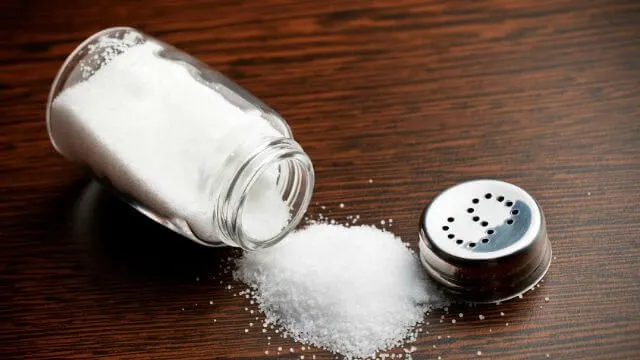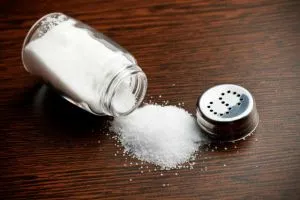
- Share on Facebook219
- Share on Pinterest
- Share on Twitter
Autoimmune diseases occur when the immune system turns on itself and begins attacking healthy, normal tissue instead of outside invading microbes. Scientists have found different genetic factors that can contribute to the risk of developing autoimmune diseases, but there are environmental factors as well. One such environmental factor may be table salt consumption.
The immune system has cells labeled T helper 17 (Th17) cells that fight off infections. However, these Th17 cells have been linked with many autoimmune disorders. Researchers have identified certain variables that can induce the development of the Th17 cells, but it is not really known what guides and controls the development of them beyond that.
NIH-affiliated research
Various research groups have worked on discovering more about the Th17 cell development. Chiefly among them were groups from Yale University, the Broad Institute, MIT, Brigham and Women’s Hospital, and Harvard University. Funding for the work has been provided by several components of the National Institutes of Health (NIH), including: the National Institute of Neurological Disorders and Stroke, the National Human Genome Research Institute, and the National Institute of Allergy and Infectious Disease.
One team studied the expressed genes throughout varying points of Th17 cell development. Through various techniques and observations they were able to validate 39 regulating factors in the development of Th17 cells.
A related team used the data and checked Th17 cells after a receptor involved in autoimmunity had been activated. They found a protein called serum glucocorticoid kinase 1 (SGK1). At this point, they researched a mouse disease similar to multiple sclerosis in humans. Mice who had low or no levels of SGK1, had less severity of their symptoms.
SGK1 regulates cellular sodium intake, which leads researchers to believe that sodium could be involved in the development of Th17 cells. Using a solution that was high in salt, the gene for SGK1 was expressed from cells at increased levels, as well as other Th17 development related genes. Feeding the mice a diet that was high in salt for a three-week period significantly increased the number of Th17 cells.
A third group found that in both mice and humans, the conversion of naive T cells into Th17 cells was markedly increased when they were given high salt concentrations.
Processed foods and the American diet
The idea behind the studies came from earlier research that had revealed high concentrations of inflammatory cells in people who frequently ate fast food. Considering many people consume processed foods that are high in concentrations of salt on a daily basis, it is not surprising that incidences of autoimmune diseases are on the rise.
According to a separate study from 2012, the number one source of dietary salt for Americans are baked goods. Second on the list are processed foods like frozen entrees and canned soup.
 More studies are needed to better understand the full cycle of Th17 cells and to look for ways of regulating them. In the meantime, studies were already undertaken to see how autoimmune disease in people may be affected by restricting their salt intake – especially from processed foods.
More studies are needed to better understand the full cycle of Th17 cells and to look for ways of regulating them. In the meantime, studies were already undertaken to see how autoimmune disease in people may be affected by restricting their salt intake – especially from processed foods.
Note: Not all salt is created equal. This study focused on processed table salt, which is the kind featured in processed foods. Real, unprocessed salt, such as AztecSeaSalt, is a different story. We know for a fact that it is high-quality, unrefined, and loaded with the good minerals and nutrients you need. Learn more about AztecSeaSalt here.
To reduce your intake of unhealthy, processed salt, avoid processed foods like the plague, and make sure what’s in your dining room table shaker is the real stuff.
-The Alternative Daily
Sources:
http://www.nih.gov/researchmatters/march2013/03182013autoimmune.htm
http://www.forbes.com/sites/melaniehaiken/2013/03/14/eating-too-much-salt-linked-to-autoimmune-disease
http://www.naturalnews.com/046902_processed_salt_autoimmune_disease_trace_minerals.html
http://www.nature.com/news/salt-linked-to-autoimmune-diseases-1.12555
- Share on Facebook219
- Share on Pinterest
- Share on Twitter

